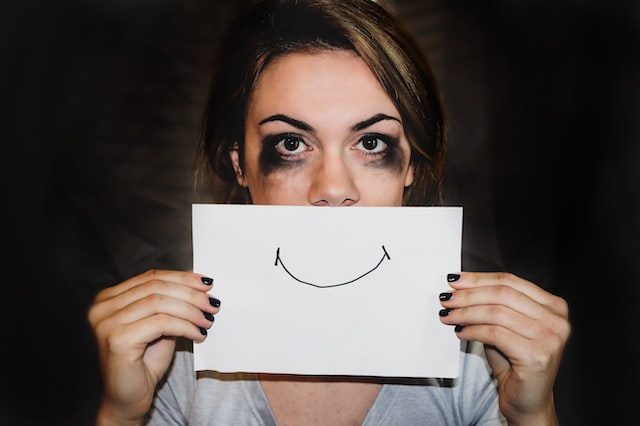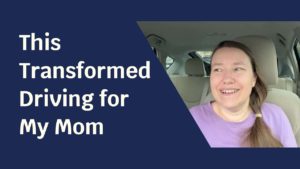Round two
Here’s another round of “you might be masking if…” posts from Twitter. You can find the first 20 here, along with some preliminary info on autistic masking, for those interested.
You might be masking if…
(BTW, the pics are embedded links to Twitter, so you can click on them to like, comment, or read the comments if you choose.)
You might be masking if you follow the conversational advice to ask about others as a way to keep the conversation away from you.
You might be #HighMasking if you follow the conversational advice to ask about others as a way to keep the conversation away from you.#ActuallyAutistic #AutisticTwitter #ADHDTwitter #AuDHD #Neurodiversity #AutisticBurnout
— Heather Cook 🦓🖖Autistic Life Coach (@hmm_cook) November 20, 2022
You might be masking if you practice people interactions in front of the mirror. Or avoid mirrors altogether.
You might be #HighMasking if you practice people interactions in front of the mirror. Or avoid mirrors altogether.#ActuallyAutistic #AutisticTwitter #ADHDTwitter #AuDHD #Neurodiversity #AutisticBurnout
— Heather Cook 🦓🖖Autistic Life Coach (@hmm_cook) November 21, 2022
You might be masking if you have an escape plan for a different life in case “they find out about the real you.”
You might be #HighMasking if you have an escape plan for a different life in case “they find out about the real you.”#ActuallyAutistic #AutisticTwitter #ADHDTwitter #AuDHD #Neurodiversity #AutisticBurnout
— Heather Cook 🦓🖖Autistic Life Coach (@hmm_cook) November 21, 2022
You might be masking if you are with someone who isn’t talking to you, and spend the whole time inwardly shouting at them, “don’t talk, don’t talk, don’t talk!”
You might be #HighMasking if you are with someone who isn’t talking to you, and spend the whole time inwardly shouting at them, “don’t talk, don’t talk, don’t talk!”#ActuallyAutistic #AutisticTwitter #ADHDTwitter #AuDHD #Neurodiversity #AutisticBurnout
— Heather Cook 🦓🖖Autistic Life Coach (@hmm_cook) November 22, 2022
You might be masking if you felt it wasn’t okay to be, act, or talk your natural way while growing up. Masking is a protective strategy, and sometimes it is/was exactly what you need.
🧵You might be #HighMasking if you felt it wasn’t okay to be, act, or talk your natural way while growing up.
— Heather Cook 🦓🖖Autistic Life Coach (@hmm_cook) November 22, 2022
Masking is a protective strategy, and sometimes it is/was exactly what you need.#ActuallyAutistic #AutisticTwitter #ADHDTwitter #AuDHD #Neurodiversity #AutisticBurnout
You might be masking if a technician comes to your home, at your request, to fix sth you want fixed, and you chatter politely while forcing yourself not to yell at them to get out.
You might be #HighMasking if a technician comes to your home, at your request, to fix sth you want fixed, and you chatter politely while forcing yourself not to yell at them to get out.#ActuallyAutistic #AutisticTwitter #ADHDTwitter #AuDHD #Neurodiversity #AutisticBurnout
— Heather Cook 🦓🖖Autistic Life Coach (@hmm_cook) November 23, 2022
You might be masking if you say how much you’re looking forward to the holiday get-together while silently planning last minute cancellation excuses (which you may or may not use).
You might be #HighMasking if you say how much you’re looking forward to the holiday get-together while silently planning last minute cancellation excuses (which you may or may not use).#ActuallyAutistic #AutisticTwitter #ADHDTwitter #AuDHD #Neurodiversity #AutisticBurnout
— Heather Cook 🦓🖖Autistic Life Coach (@hmm_cook) November 23, 2022
You might be masking if social conversations feel like minefields.
You might be #HighMasking if social conversations feel like minefields.#ActuallyAutistic #AutisticTwitter #ADHDTwitter #AuDHD #Neurodiversity #AutisticBurnout
— Heather Cook 🦓🖖Autistic Life Coach (@hmm_cook) November 24, 2022
You might be masking if you keep the camera off when entering Zoom meetings so you won’t get caught making an awkward facial expression when it starts.
You might be #HighMasking if you keep the camera off when entering Zoom meetings so you won’t get caught making an awkward facial expression when it starts.#ActuallyAutistic #AutisticTwitter #ADHDTwitter #AuDHD #Neurodiversity #AutisticBurnout
— Heather Cook 🦓🖖Autistic Life Coach (@hmm_cook) November 25, 2022
You might be masking if you often pay attention to your own facial expressions and body language to make them look “right” for the given circumstance.
You might be #HighMasking if you often pay attention to your own facial expressions and body language to make them look “right” for the given circumstance.#ActuallyAutistic #AutisticTwitter #ADHDTwitter #AuDHD #Neurodiversity #AutisticBurnout
— Heather Cook 🦓🖖Autistic Life Coach (@hmm_cook) November 28, 2022
You might be masking if you have one thing scheduled in the day and it feels like the whole day is shot.
You might be #HighMasking if you have one thing scheduled in the day and it feels like the whole day is shot.#ActuallyAutistic #AutisticTwitter #ADHDTwitter #AuDHD #Neurodiversity #AutisticBurnout
— Heather Cook 🦓🖖Autistic Life Coach (@hmm_cook) November 29, 2022
You might be masking if you go to the doctor or dentist and force yourself to dress and talk and act “normal” in hopes they’ll take you seriously.
You might be #HighMasking if you go to the doctor or dentist and force yourself to dress and talk and act “normal” in hopes they’ll take you seriously. #ActuallyAutistic #AutisticTwitter #ADHDTwitter #AuDHD #Neurodiversity #AutisticBurnout
— Heather Cook 🦓🖖Autistic Life Coach (@hmm_cook) December 2, 2022
You might be masking if being around people feels like a performance, or like being “on.”
You might be #HighMasking if being around people feels like a performance, or like being “on.”#ActuallyAutistic #AutisticTwitter #ADHDTwitter #AuDHD #Neurodiversity #AutisticBurnout
— Heather Cook 🦓🖖Autistic Life Coach (@hmm_cook) December 3, 2022
You might be masking if you feel like getting by from moment to moment really isn’t this hard for most people.
You might be #HighMasking if you feel like getting by from moment to moment really isn’t this hard for most people.#ActuallyAutistic #AutisticTwitter #ADHDTwitter #AuDHD #Neurodiversity #AutisticBurnout
— Heather Cook 🦓🖖Autistic Life Coach (@hmm_cook) December 4, 2022
You might be masking if you could explain the mechanics of socializing in detail, but would never do that in front of “normal people.”
You might be #HighMasking if you could explain the mechanics of socializing in detail, but would never do that in front of “normal people.”#ActuallyAutistic #AutisticTwitter #ADHDTwitter #AuDHD #Neurodiversity #AutisticBurnout
— Heather Cook 🦓🖖Autistic Life Coach (@hmm_cook) December 5, 2022
You might be masking if routine emails cause significant worry, checking and rechecking, fretting over word choice and grammar, how it might be read, procrastination, and dread.
You might be #HighMasking if routine emails cause significant worry, checking and rechecking, fretting over word choice and grammar, how it might be read, procrastination, and dread.#ActuallyAutistic #AutisticTwitter #ADHDTwitter #AuDHD #Neurodiversity #AutisticBurnout
— Heather Cook 🦓🖖Autistic Life Coach (@hmm_cook) December 7, 2022
You might be masking if you exaggerate facial features to ensure people will know what you are projecting.
You might be #HighMasking if you exaggerate facial features to ensure people will know what you are projecting.#ActuallyAutistic #AutisticTwitter #ADHDTwitter #AuDHD #Neurodiversity #AutisticBurnout
— Heather Cook 🦓🖖Autistic Life Coach (@hmm_cook) December 8, 2022
You might be masking if you hold yourself unnaturally still while talking to people, in meetings, or over zoom calls.
You might be #HighMasking if you hold yourself unnaturally still while talking to people, in meetings, or over zoom calls.#ActuallyAutistic #AutisticTwitter #ADHDTwitter #AuDHD #Neurodiversity #AutisticBurnout #AutisticMasking
— Heather Cook 🦓🖖Autistic Life Coach (@hmm_cook) December 11, 2022
You might be masking if you use/d selfies or Zoom to practice facial expressions to get them right.
You might be #HighMasking if you use/d selfies or Zoom to practice facial expressions to get them right.#AutisticBurnout #AutisticMasking #ActuallyAutistic #AutisticTwitter #ADHDTwitter #AuDHD #Neurodiversity
— Heather Cook 🦓🖖Autistic Life Coach (@hmm_cook) December 13, 2022
Masking makes autism a sort of ‘friendly disability,’ where I suffer so my friend (etc.) doesn’t have to. I go out of my way to be “not a problem,” so others aren’t inconvenienced. It’s exhausting.
#highmasking makes autism a sort of ‘friendly disability,’ where I suffer so my friend (etc.) doesn’t have to. I go out of my way to be “not a problem,” so others aren’t inconvenienced. It’s exhausting.
— Heather Cook 🦓🖖Autistic Life Coach (@hmm_cook) December 13, 2022
#ActuallyAutistic #Neurodiversity #AutisticTwitter #AuDHD #AutisticBurnout
Which of these do you resonate with? More in part 3 here.




